


 Welcome to “Up Close and Personal.” For every interview I will be introducing a literary personality discussing his views and insights, as well as upcoming literary events around the world.
Welcome to “Up Close and Personal.” For every interview I will be introducing a literary personality discussing his views and insights, as well as upcoming literary events around the world.Today’s interview is with James Sallis. He is a renowned poet, critic, essayist, editor, translator, professor, musicologist and novelist. He is the author of more than two dozens volumes of fiction. He is best known for his Lew Griffin novels set in New Orleans. His biography of the great crime writer Chester Himes is classic book to read.
In addition he has written a critical work - Difficult Lives - examining the work of Jim Thompson, David Goodis and Chester Himes and a book on Jazz guitar and many more...
Critics agree that James Sallis, author of the Lew Griffin mystery series," may be one of the best mystery writers that most readers have never heard of.
Universal Picture has optioned one of his novels Drive and is now in production. Drive, is about a stunt driver on the run from a hit man, who enjoys a double-life as a getaway man for robberies. Golden Globe & Emmy nominee Hugh Jackman set to star in the movie.
Drive will be a Steve McQueen type role for Hugh Jackman, so fans can expect lots of chase scenes. Expected release date of the film is 2012.
Mr. Sallis lives in Phoenix, Arizona with his wife Karyn.
E.I. Would you share some early insight into who you were as a teenager? What were you like? Please tell us more about James Sallis -- the man behind the award-winning crime author?
JS: I always claim that I completely missed childhood, as I was holed up in my room reading, and utterly missed the Sixties, as I was holed up in various rooms writing. Like many who become artists of a sort later on, I was your prototypical geek. My wife would insist, rightly so, that I still am – but I’ve learned camouflage.
E.I. What is it about the art form of writing that enchants you the most?
JS: There is something about taking in the world, adding it to whatever is inside us, then putting the world back out there in such a way that we recognize it anew. Something about creating a space in which we truly come to inhabit the world; about making that bridge, that crossing, which exists for all of us, manifest.
E.I. How do you imagine audience as you are writing? Do you try to do character development, chapter outlines, various novel-related brainstorming? Do you have sheets of newsprint covered in a story boards all over your walls?
JS: First and last, I’m an improviser. I gave up writing the well-made story many years ago – about the time I began publishing. I tell my students it’s like throwing yourself off a cliff. If you encounter surprise and delight in the text, in what happens, that surprise and delight will communicate itself. For me, as a musician, it feels much like playing: You take the “head,” the melody, the chord changes, the rhythm, and you start poking at it to see what’s in there. I rarely know from page to page, paragraph to paragraph, where I’m going; or more properly, where this thing is taking me.
E.I. What was your biggest challenge in developing the character, John Turner & Eldon Brown in your book “Salt River”? Did you work them out in advance, or did they evolve as you wrote the story? How did you overcome these challenges?
JS: Let’s go back to your prior question. Cypress Grove began with the image you first encounter upon opening the novel: A man is standing in the woods listening to the sound of an approaching motor. That’s what I had, that image. And as I began to ask questions – who is this man, where is he, who is coming and why – the story began revealing itself to me, began unfolding. The image came as I was out walking. By the time I’d got back to the house, I had the first chapter in place, pretty much as you see it, creating further questions to be answered. It’s all about discovery.
E.I. If you were asked to read a page from “Salt River” is there one that you would personally select to share with your fans?
JS: I can’t think of a single page, but I’m inordinately fond of the final chapter; it still gets to me after all this time. I remember it coming in a rush as I sat there marvelling at how it pulled everything together – the relationships, the story line, the story of the town, the tone of beauty and sadness that I’d been working with the whole time. I wrote it with tears in my eyes – just as I wrote the final Lew Griffin novel. That time, when I met my wife at the door, she looked at my face and immediately said, “You finished it, didn’t you?”
E.I. How do you weave so much suspense and paranormal elements of information into your stories and yet you keep them so fast-paced?
JS: For one thing, I strive never to stray too far away from being, myself, a reader. As a reader, I want things to move, to happen, both internally and externally. I want a language that is so alive, so evocative, that it crackles as one turns the page. I want the world in my novel to look as close as possible to the world I see when I lift my eyes from the page. I want to make the world large again – to rescue both the reader and myself from what phenomenologists call dailyness.
E.I. Many writers describe themselves as "character" or "plot" writers. Which are you? And what do you find to be the hardest part of writing?
JS: I decry that distinction. We may be locked into Aristotelian thinking, where everything is A or non-A, but we can at least resist it – and certainly must, as artists given to reflecting a world of remarkable parallels, contrasts, conflicts and complexities. I’m a writer who tries, quite simply, to gather up as much of the world in my net as I can with each story, each sentence, each phrase. As for the hardest part, I’ll echo John Updike: The hardest part is getting my butt in the chair each day.
E.I. Mr. Sallis, you are well known in the writing community as a poet, critic, essayist, editor, professor, musicologist and novelist. Your writing has been published in notable publications in the US and other countries. Do you ever feel pressure or insecure, or are you able to separate all that from your own creative process?
JS: You know, in many ways I’ve led a blessed life as a writer. I received little attention for many, many years, just enough to keep me going, which allowed me to develop and write as I wished, to keep poking and whittling away at those few things I do well. Again and again, I came to editors who were in sympathy with what I was doing, and who supported me – people like Damon Knight and Mike Moorcock, Joseph McCrindle at transatlantic review, Bob Lewis at North Dakota Quarterly, Eleanor Sullivan at Ellery Queen’s, George Gibson at Walker. Most importantly, I owe everything to readers who, against odds, have found their way to my books. Bear in mind that I am not a particularly commercial writer. And I’m decidedly a quirky one.
E.I. What would you tell those authors considering applying to an M.F.A. program? In your opinion how important is it for a writer to have a writing degree?
JS: Though I’ve taught in an MFA program, I mistrust them and think of them as something akin to pyramid schemes. I do my best to dissuade students from such, asking if they might not better spend that time and energy actually writing. Hacking their way into the undeveloped territory where they will live.
E.I. Mr. Sallis, Thank you for contributing to my blog. It has been a pleasure for me to get to know your work a little better. Would you like to end your interview with a writing tip or advice for young aspiring writers?
JS: Get your butts in the chair.
Photo of James Sallis by Marshall J. Greer
To learn more about James Sallis please visit his WEBSITE
To purchase his books please visit AMAZON and Barnes & Noble







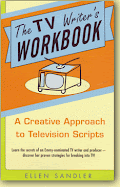



.png)



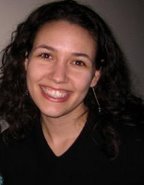
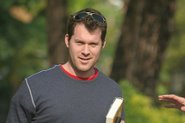


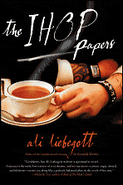
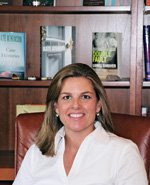
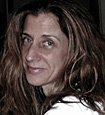
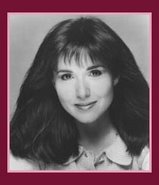






No comments:
Post a Comment